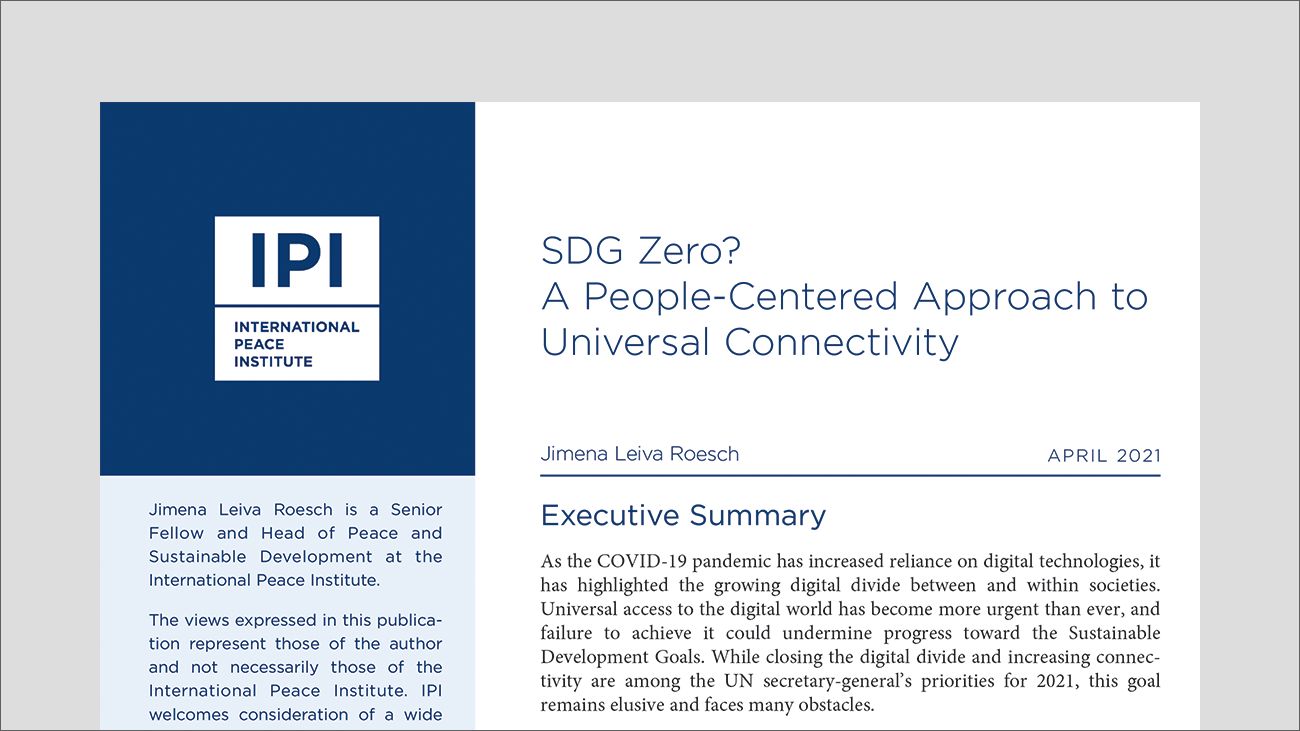
As the COVID-19 pandemic has increased reliance on digital technologies, it has highlighted the growing digital divide between and within societies. Universal access to the digital world has become more urgent than ever, and failure to achieve it could undermine progress toward the Sustainable Development Goals. While closing the digital divide and increasing connectivity are among the UN secretary-general’s priorities for 2021, this goal remains elusive and faces many obstacles.
This paper, based on a series of three roundtables convened by IPI, together with Microsoft, in March and April 2021, identifies some of these obstacles to universal connectivity and considers how they can be overcome. It looks in particular at the human rights risks of rushing to close the digital divide. Ultimately, it concludes that achieving meaningful and sustainable progress toward digital inclusion requires all actors to commit to working through a multi-stakeholder platform.
In a spirit of collaboration and to stimulate further dialogue, the paper puts forward the following recommendations:
- Expand the definition of universal connectivity;
- Tie digital inclusion to the 2030 Agenda;
- Ensure that the roll-out of universal connectivity is benevolent;
- Support context-specific national and local strategies;
- Develop new financing models such as sovereign guarantees or digital bonds;
- Build a common understanding of connectivity and digital inclusion;
- Build confidence among different actors; and
- Give the UN a leadership role.







